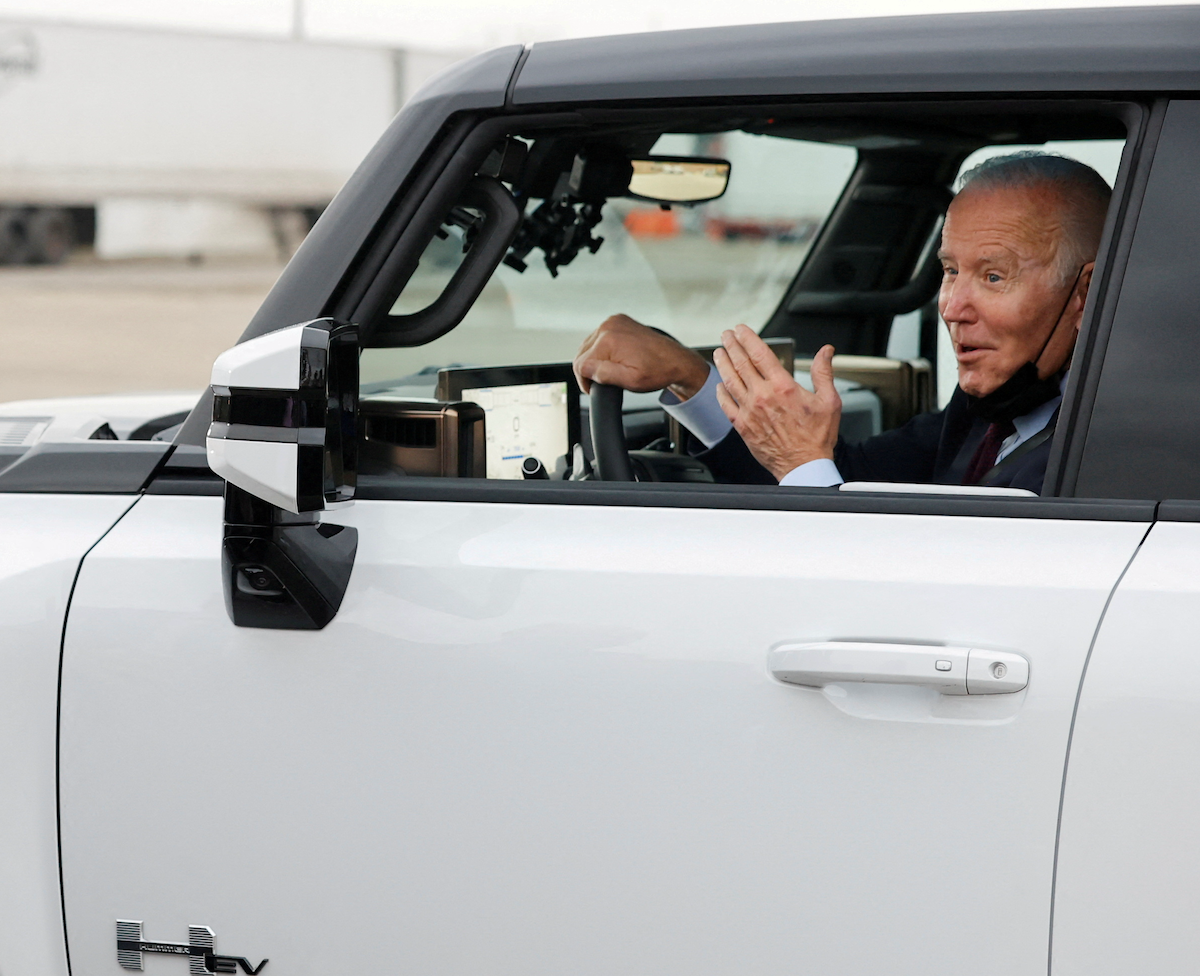As goes the American car market, so goes the world. Or at least large swathes of North America. With the Biden administration’s latest auto regulations, that may mean electric vehicles pull ahead as those with internal combustion engines.
On Wednesday, President Joe Biden introduced tailpipe pollution limits that require automakers to reduce carbon emissions from their vehicles by 56% by 2032 based on 2026 levels.
The new rules also require automakers to ramp up EV production. The administration is aiming for full EVs to account for roughly 35 to 56% of all vehicle sales and for plug-in hybrids to make up 13 to 36% within the next eight years. Full EVs currently account for 7.6% of sales.
Conscious of growing American protectionist impulses – and the coming presidential election – Biden hammed hard on protecting American auto jobs, promising the EVs would be made in the US-of-A. Democrats were concerned about alienating unions or automakers and their workers ahead of November.
In Canada, Prime Minister Justin Trudeau's government is planning for 20% of new light-duty vehicles sold to be zero-emissions by 2026, gradually rising to 100% by 2035. Biden’s move may help his cause as it pushes automakers to speed up production on more environmentally friendly vehicles.


















